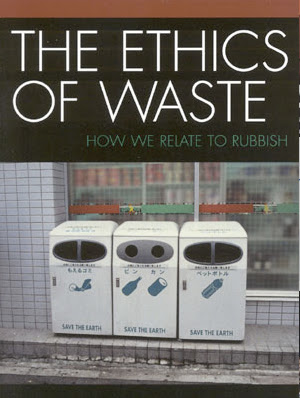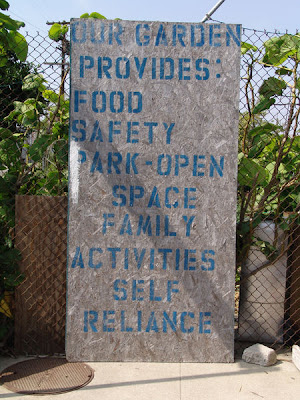Episode 7 Waste System - The Ethics of Waste

![]() Today we are discussing the waste system of the home. Sustainability is such a buzz word these days particularly as the idea of green design becomes more desirable and more profitable, whether its for the right or wrong reasons. There are many definitions of what it means to be sustainable; many involve our consumption and the waste we create, at the beginning, middle and end of a product's or service's life cycle. Our close, and often problematic relationship with the waste we produce is not a new one. However it has grown to be a bigger issue as the amount of waste we produce has grown exponentially. Our modus operandi to date has been to look to technology to try to solve our waste problems. And while technology has offered some help, it has served as a band-aid solution for a much larger, more complex issue. At the root of it is our deep connection to things, to the objects we buy and keep around us and then tire of and throw out for the newer, better versions that come along. Today I have the pleasure to speak with Gay Hawkins, the author of a book entitled, The Ethics of Waste: How We Relate to Rubbish, which looks at our fascinating and complex relationship to the waste we produce. Gay Hawkins teaches in the School of Media and Communications at the University of New South Wales in Sydney, Australia. Her unique perspective offers us an opportunity to better understand our consumption and accumulation and opens the door for smarter, more conscientious, long term solutions.
Today we are discussing the waste system of the home. Sustainability is such a buzz word these days particularly as the idea of green design becomes more desirable and more profitable, whether its for the right or wrong reasons. There are many definitions of what it means to be sustainable; many involve our consumption and the waste we create, at the beginning, middle and end of a product's or service's life cycle. Our close, and often problematic relationship with the waste we produce is not a new one. However it has grown to be a bigger issue as the amount of waste we produce has grown exponentially. Our modus operandi to date has been to look to technology to try to solve our waste problems. And while technology has offered some help, it has served as a band-aid solution for a much larger, more complex issue. At the root of it is our deep connection to things, to the objects we buy and keep around us and then tire of and throw out for the newer, better versions that come along. Today I have the pleasure to speak with Gay Hawkins, the author of a book entitled, The Ethics of Waste: How We Relate to Rubbish, which looks at our fascinating and complex relationship to the waste we produce. Gay Hawkins teaches in the School of Media and Communications at the University of New South Wales in Sydney, Australia. Her unique perspective offers us an opportunity to better understand our consumption and accumulation and opens the door for smarter, more conscientious, long term solutions.
To learn more about Gay Hawkins and her book The Ethics of Waste: How We Relate to rubbish and her other work, check out the following links:
empa.arts.unsw.edu.au/staff/staff.php?first=Gay&last=Hawkins
www.api-network.com/cgi-bin/reviews/jrbview.cgi?n=0868409391
www.lib.latrobe.edu.au/AHR/archive/Issue-April-2004/hawkins.html
www.amazon.com/Culture-Waste-Gay-Hawkins/dp/0742519821
The two songs used in today's program both have the word waste in their titles. These songs were created by independent artists willing to share their music online for free. The artists can be found on garageband.com a website promoting new and emerging independent musicians. Here are links to the artists:
Waste by Doc Davidson is Twain
www.garageband.com/artist/therealtwain
Beautiful Waste of Time by Colours Run
www.garageband.com/song?|pe1|S8LTM0LdsaSlYlWyZGE
Join us next week for another episode of World House Radio: Stories of Home.
*Special thanks to Gary Maloney, fellow IwB teammate, who assisted with the preparation for this interview. Gary spent much of the spring learning about the waste system of the home as part of the World House Project. He recommended Gay Hawkin's book, The Ethics of Waste as the ideal subject for a World House Radio podcast dedicated to the waste system.


